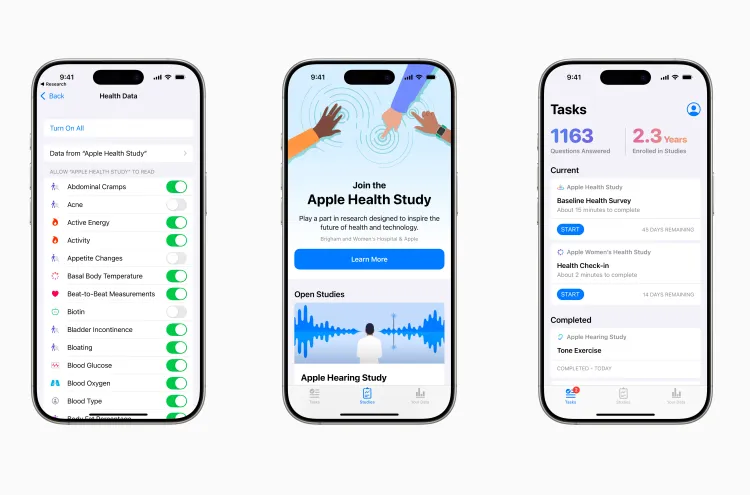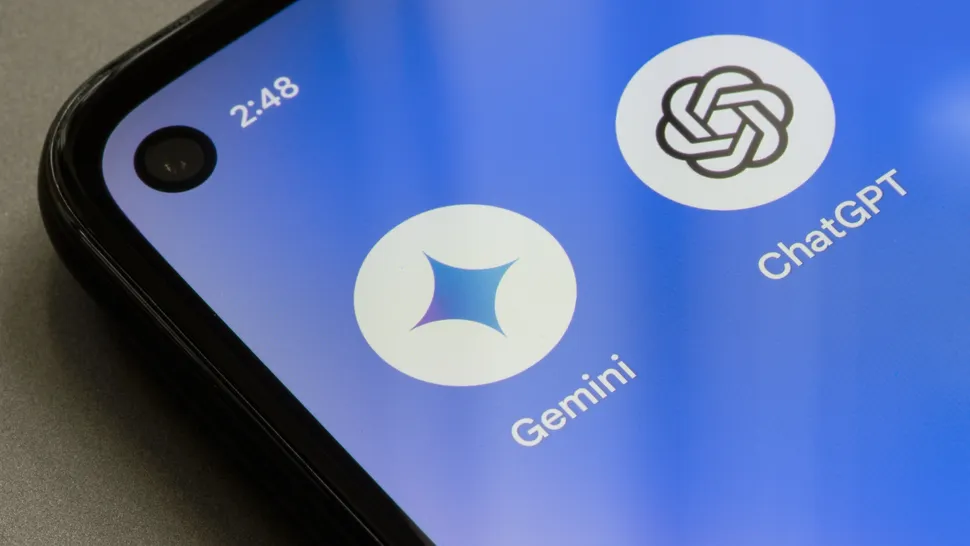Apple has announced a new research project called the Apple Health Study. Unlike its previous studies, this one does not focus on a specific area.
Instead, Apple will collect data from iPhones, Apple Watches, and AirPods to explore connections between different aspects of health, both physical and mental.
Apple has a history of turning health research into real products. For example, the hearing test feature in AirPods came from the Apple Hearing Study. This new study could lead to similar innovations.
How the Apple Health Study Works
The study will appear in the Apple Research app and is being conducted with Brigham and Women’s Hospital, a Harvard Medical School affiliate. Users who join will share their health data and answer survey questions about their lifestyle.
Apple will collect data on various health topics, including:
- Activity and mobility
- Cardiovascular and circulatory health
- Hearing and cognition
- Menstrual and metabolic health
- Neurological and respiratory health
- Sleep patterns
The study will last at least five years and may continue longer.
Why This Study Is Different
Most medical studies focus on a single health topic with a small group of participants. Apple’s approach is different. Its first research project, the Apple Heart Study, included 400,000 participants—far more than a typical study.
This large-scale approach could help researchers find new health connections that smaller studies might miss. For example, it could uncover links between hearing loss and cognitive decline or how time zones affect sleep patterns.
Dr. Calum MacRae, a professor at Harvard Medical School, is leading the study. He says Apple’s research could speed up discoveries by including a diverse group of participants rather than a limited population.
Apple’s Long-Term Vision
Apple hopes this study will lead to more proactive health features in its devices. Some could be hardware-based, like a new Apple Watch sensor, while others could be software updates, like improvements to Focus modes.
However, Apple says it will take time before users see new health features. Some may take two to three years to develop, while others—like the Apple Watch sleep apnea detection feature—could take five years or more.
While the results of the Apple Health Study won’t be immediate, the research could shape future health innovations across Apple’s products.










Leave a comment